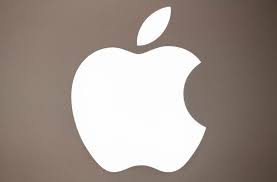In a significant move for the technology sector, Apple and Alibaba Cloud have joined the board of a prominent consortium dedicated to developing standards for GPU interconnect technology. This initiative underscores the growing importance of advanced computing frameworks in addressing the increasing demands of modern applications, from artificial intelligence to high-performance gaming. The participation of these industry leaders signals a concerted effort to push forward innovation and set benchmarks that could shape the future of computing.

The consortium, which aims to create a unified standard for GPU interconnects, represents a collaborative approach to tackling one of the most pressing challenges in computing: ensuring seamless communication and data transfer between GPUs. Graphics processing units, which are central to tasks like rendering graphics, processing data, and running AI algorithms, require high-speed interconnects to function efficiently in multi-GPU setups. By establishing standardized protocols, this initiative seeks to improve interoperability, reduce costs, and enhance overall system performance.
Apple’s involvement in this group is particularly noteworthy given the company’s reputation for designing proprietary hardware and software ecosystems. By participating in a collective effort to develop open standards, Apple is signaling its recognition of the broader benefits of collaboration. This move could also reflect the company’s growing investment in artificial intelligence and machine learning, areas where GPUs play a critical role. With AI increasingly embedded in products ranging from smartphones to autonomous vehicles, ensuring optimal GPU performance is becoming a strategic priority for Apple.
Alibaba Cloud’s role in this initiative highlights the growing influence of cloud computing providers in shaping hardware standards. As one of the largest cloud service providers globally, Alibaba Cloud is heavily invested in building infrastructure capable of supporting diverse workloads, including data analytics, machine learning, and enterprise applications. Standardized GPU interconnects would allow the company to optimize its hardware resources, providing customers with more reliable and cost-effective services.
The development of GPU interconnect standards is expected to address several key challenges faced by the tech industry. One major issue is the lack of compatibility between different manufacturers’ GPUs, which often results in inefficiencies and increased costs for system integrators. Standardized interconnects would eliminate these barriers, enabling seamless integration of GPUs from multiple vendors. This would benefit not only hardware manufacturers but also end-users, who would gain access to more flexible and cost-effective solutions.
Another critical challenge is the growing demand for computational power, driven by advancements in artificial intelligence, machine learning, and data-intensive applications. Multi-GPU systems are increasingly being used to meet these demands, but their effectiveness depends on high-speed communication between GPUs. Current proprietary solutions often fall short in terms of scalability and performance, particularly as workloads become more complex. By establishing open standards, the consortium aims to create a framework that supports next-generation computing requirements.
To illustrate the potential impact of standardized GPU interconnects, consider the following table, which compares the benefits of proprietary versus open standards for multi-GPU systems:
| Feature | Proprietary Standards | Open Standards |
|---|---|---|
| Compatibility | Limited to specific vendors | Broad compatibility across vendors |
| Scalability | Restricted by proprietary designs | Enhanced scalability for diverse setups |
| Cost | Higher due to vendor lock-in | Lower due to competitive options |
| Innovation | Slower due to closed ecosystems | Faster through collaborative efforts |
| Ease of Integration | Complex and vendor-dependent | Simplified and vendor-agnostic |
This table highlights how open standards can drive progress by fostering competition, reducing costs, and enabling greater innovation. For you as a consumer or professional in the tech industry, these advancements could translate into more powerful and affordable computing solutions tailored to your needs.
The involvement of Apple and Alibaba Cloud also reflects broader trends in the tech industry, where collaboration between traditional hardware companies and cloud service providers is becoming increasingly common. This convergence is driven by the realization that addressing complex challenges—such as the need for scalable AI solutions and efficient data processing—requires input from diverse stakeholders. By bringing together expertise from different sectors, the consortium is well-positioned to develop standards that address the needs of both hardware manufacturers and end-users.
This development also raises important questions about the future of proprietary technologies. While companies like Apple have traditionally relied on closed ecosystems to maintain control and ensure quality, their participation in initiatives like this suggests a shift toward greater openness and collaboration. This could have far-reaching implications for the industry, potentially leading to a more interconnected and interoperable technological landscape.
For you, the standardization of GPU interconnects represents a step toward more efficient and accessible technology. Whether you are a developer working on AI algorithms, a gamer seeking the best performance, or a business leveraging cloud computing, the benefits of open standards are likely to be felt across the board. By reducing barriers to entry and fostering innovation, these standards could pave the way for a new era of computing that is more inclusive and adaptable to evolving needs.
As the consortium continues its work, the focus will likely shift toward addressing technical challenges and ensuring widespread adoption of the new standards. This will require ongoing collaboration between hardware manufacturers, cloud providers, and other stakeholders. The success of this initiative will depend not only on the quality of the standards themselves but also on the willingness of the industry to embrace them.
The decision by Apple and Alibaba Cloud to join the board of the consortium developing GPU interconnect standards marks a significant milestone for the tech industry. By working together to create open and interoperable solutions, these companies are helping to address some of the most pressing challenges in modern computing. For you, this initiative promises a future where technology is more efficient, accessible, and adaptable to your needs. As these standards take shape, they will play a crucial role in shaping the direction of innovation and ensuring that the benefits of advanced computing are available to all.










Add Comment